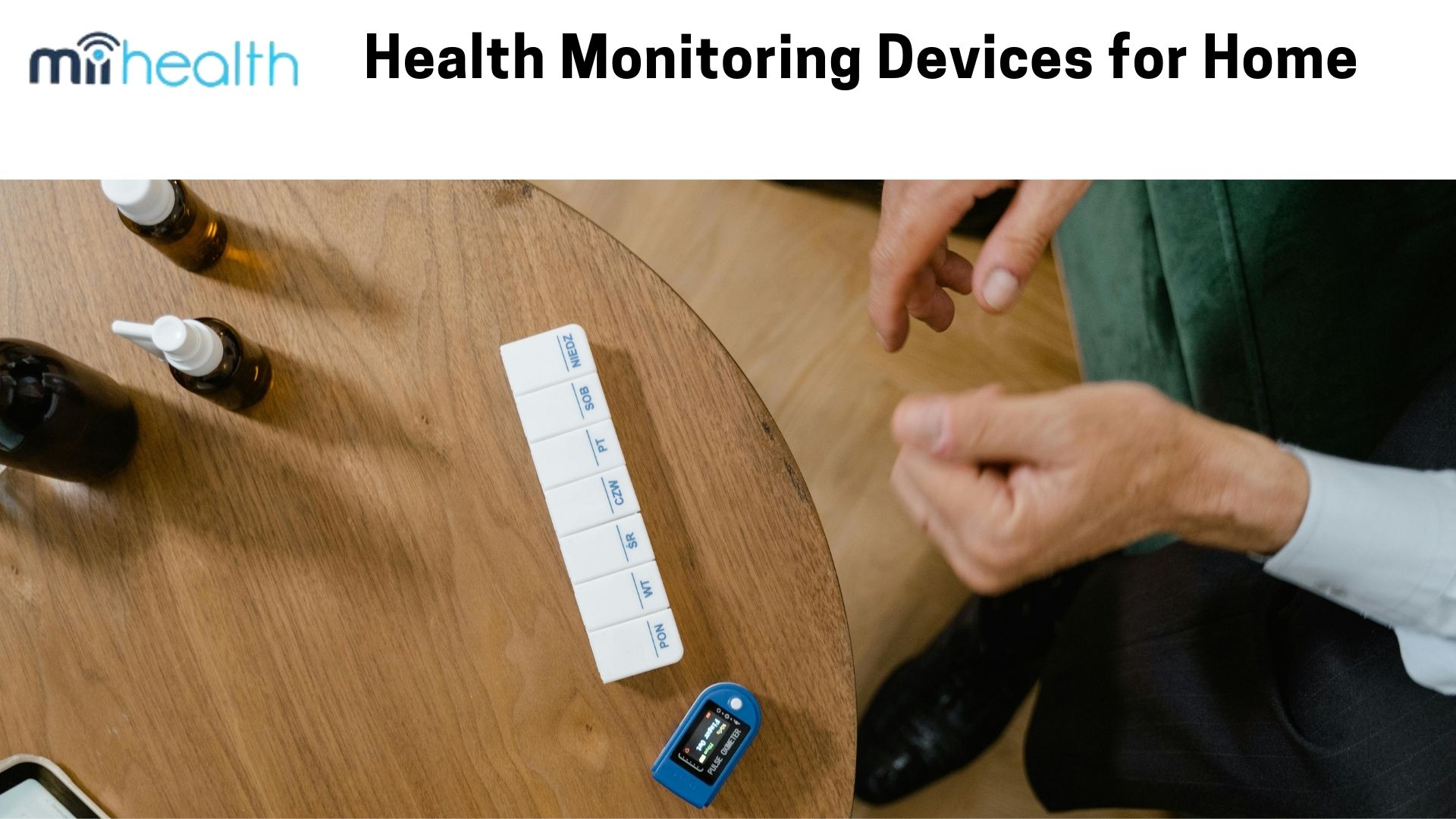The Role of Virtual Health Care Assistant in the Future of Senior Healthcare in America

Strong 8k brings an ultra-HD IPTV experience to your living room and your pocket.
As America’s population ages, the need for innovative healthcare solutions has never been more pressing. With millions of seniors requiring ongoing medical attention, the traditional healthcare system is stretched thin. Enter virtual health care assistant—an exciting development in senior healthcare that promises to enhance accessibility and efficiency. In this article, we’ll explore the vital role these virtual helpers are set to play in shaping the future of senior healthcare in America.
Understanding Virtual Health Care Assistant
Definition and Technology Behind Virtual Assistants
Virtual health care Assistant (VHCA) are digital tools that provide support and services to patients remotely. They leverage advanced technologies like artificial intelligence (AI) and machine learning to assist healthcare professionals and deliver personalized care to seniors. These assistants can help with everything from medication reminders to scheduling appointments, making them invaluable in the quest for effective elder care.
Differences Between Virtual Assistants and Traditional Healthcare Providers
While traditional healthcare providers offer in-person consultations and treatments, virtual assistants operate primarily online or via mobile applications. This digital shift allows seniors to access healthcare services from the comfort of their homes, significantly reducing the barriers to care.
The Growing Importance of Senior Healthcare
Statistics on the Aging Population
According to the U.S. Census Bureau, by 2030, one in five Americans will be 65 or older. With this demographic shift comes an increased demand for tailored healthcare services that can meet the unique needs of seniors.
Challenges in Senior Healthcare Management
Managing the health of older adults involves navigating various challenges, including chronic conditions, mobility issues, and often, social isolation. The traditional healthcare system struggles to keep pace with these needs, making the integration of virtual health care assistant crucial.
How Virtual Health Care Assistant Work
Technology Used in Virtual Assistance
VHCA operate through platforms that utilize video conferencing, chatbots, and mobile applications. This technology allows them to provide real-time support, monitor patient health, and offer education on health management.
Typical Tasks and Responsibilities
From scheduling appointments to providing reminders for medications, VHCA can handle a myriad of tasks. They also serve as a bridge between patients and healthcare professionals, ensuring that seniors receive timely advice and support.
Benefits of Virtual Health Care Assistants for Seniors
Enhanced Accessibility to Healthcare
One of the most significant advantages of VHCA is the enhanced accessibility they offer. Seniors can consult healthcare providers without the need for transportation or long wait times, leading to improved health outcomes.
Cost-Effectiveness of Virtual Care
Virtual health care can significantly reduce costs for both patients and healthcare providers. By minimizing the need for in-person visits, VHCA can lead to lower healthcare expenses and reduced time lost from work or caregiving responsibilities.
Personalized Care and Support
With the ability to track health metrics and monitor conditions, virtual assistants can offer personalized care tailored to individual needs. This level of customization ensures that seniors receive the support necessary for optimal health.
Challenges Facing Virtual Health Care Assistants
Technological Barriers
Not all seniors are tech-savvy, and this can create a gap in accessing virtual care. Providing training and support for seniors is essential to ensure they can effectively use these tools.
Privacy and Security Concerns
With the rise of digital health care comes the responsibility to protect patient data. Concerns about privacy and security can deter some seniors from fully embracing virtual health care.
Acceptance Among Seniors and Caregivers
While virtual health care is beneficial, some seniors and caregivers may be hesitant to adopt it. Building trust and demonstrating the value of these tools will be crucial for widespread acceptance.
Case Studies of Successful Virtual Health Care Implementation
Examples of Organizations Using Virtual Assistants Effectively
Several healthcare organizations have successfully integrated virtual health care assistants into their operations. For instance, organizations like Teladoc and Amwell have reported positive outcomes, including increased patient satisfaction and reduced hospital readmission rates.
Positive Outcomes and Feedback from Users
Feedback from users highlights the convenience and effectiveness of VHCA. Many seniors appreciate the ability to communicate with healthcare providers without leaving home, leading to more consistent health monitoring.
The Role of Artificial Intelligence in Virtual Health Care
AI's Contribution to Enhancing Virtual Care
Artificial intelligence plays a pivotal role in the functioning of virtual health care assistants. AI algorithms can analyze vast amounts of data to predict health outcomes and provide proactive care recommendations.
Predictive Analytics and Patient Monitoring
By utilizing predictive analytics, VHCA can monitor patient health and detect potential issues before they become severe. This proactive approach can lead to better health management and improved quality of life for seniors.
The Future of Virtual Health Care Assistants
Trends Shaping Virtual Healthcare
As technology continues to advance, we can expect to see even more integration of virtual health care assistants in senior healthcare. Trends such as telehealth expansion and increased use of wearables will enhance the capabilities of VHCA.
Predictions for the Next Decade
Looking ahead, the role of virtual health care assistants is poised to expand. With advancements in technology and growing acceptance among seniors, VHCA may become a standard component of healthcare delivery for older adults.
Integrating Virtual Health Care Assistants with Traditional Care
A Hybrid Approach to Healthcare
The future of senior healthcare may lie in a hybrid approach that combines virtual assistants with traditional in-person care. This model can provide a comprehensive healthcare experience that meets the diverse needs of seniors.
Collaboration Between Virtual and In-Person Services
Healthcare providers will need to establish protocols for effective collaboration between virtual and in-person services. This integration will ensure seamless care transitions and improved patient outcomes.
Best Practices for Using Virtual Health Care Assistants
Tips for Seniors and Caregivers
To maximize the benefits of virtual health care assistants, seniors and caregivers should ensure they have reliable internet access, familiarize themselves with the technology, and keep an open line of communication with healthcare providers.
Training and Support for Effective Use
Providing training and ongoing support for seniors is essential for successful adoption. Organizations should prioritize resources to help seniors navigate virtual health care platforms confidently.
Regulatory and Ethical Considerations
Current Regulations on Virtual Healthcare
As the use of virtual health care assistants grows, regulatory bodies must develop guidelines to govern their use, ensuring that patient rights and safety are protected.
Ethical Implications of Virtual Assistance
The ethical implications of virtual health care are vast, from ensuring equitable access to addressing potential biases in AI algorithms. Ongoing dialogue will be necessary to navigate these challenges.
FAQs
What is a virtual health care assistant?
A virtual health care assistant is a digital tool that provides healthcare support and services remotely, using technologies like AI and mobile applications.
How can virtual health care assistants help seniors?
They can enhance accessibility to healthcare, provide cost-effective services, and offer personalized care tailored to individual needs.
Are there any risks associated with using virtual health care assistants?
Yes, potential risks include technological barriers, privacy and security concerns, and a lack of acceptance among some seniors and caregivers.
How do I choose the right virtual health care assistant for my needs?
Consider factors such as the specific services offered, user-friendliness, security measures, and reviews from other users.
What does the future hold for virtual health care in America?
The future is promising, with expected advancements in technology and increased acceptance among seniors, making virtual health care assistants a standard part of elder healthcare.
Conclusion
Virtual health care assistants represent a significant advancement in senior healthcare. As technology continues to evolve, these digital tools will play a critical role in providing accessible, personalized care to millions of seniors across America. Embracing this change can lead to improved health outcomes and a better quality of life for older adults.
Note: IndiBlogHub features both user-submitted and editorial content. We do not verify third-party contributions. Read our Disclaimer and Privacy Policyfor details.




